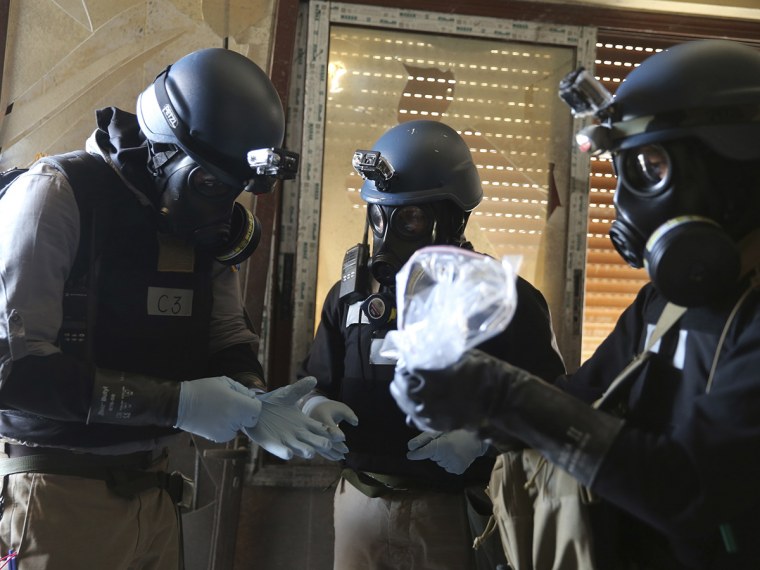Last fall, with President Obama poised to launch a military assault on Syria, the threat of force led to an unexpected breakthrough: the Assad government agreed to give up its chemical weapons and join the international Convention on Chemical Weapons. As part of an international framework, the United States even got Syria's most powerful ally, Russia, to agree to help enforce the deal.For reasons I've never fully understood, the Beltway characterized this as an embarrassing failure for the Obama administration. By some measures, it seems any development that lacks cruise missiles and/or predator drones is, almost by definition, unsatisfying.
Of course, in order for the deal to be an actual success, Syria would need to meet its obligations under the diplomatic framework. As of today, there's
fresh evidence of progress.
After months of delay, Syria exported the last of its known supplies of chemical weapons components on Monday for destruction overseas, the Organization for the Prohibition of Chemical Weapons announced, calling it a major achievement in a country engulfed by war. [...]Syria delivered the final stocks of the more than 1,300 tons of chemical agents it had declared to the port of Latakia, where they were loaded aboard a Danish vessel that left Monday afternoon, said Ahmet Uzumcu, director general of the organization, which has been collaborating with the United Nations to monitor Syria's vows.
Uzumcu told reporters from The Hague, "The declared chemical weapons have left Syria."
That's encouraging, though "declared" is an important part of that sentence.
As part of the international agreement, Syria cannot use, have, or make chemical weapons. Since Obama accepted the parameters of the deal, Assad has not used them and he's given up the weapons he was willing to disclose (after originally having claimed such CW did not exist).
But there's obviously a difference between saying "declared chemical weapons" are no longer in Syria and "all chemical weapons" are no longer in Syria.
In this case, the inspectors on the ground added that verification work isn't done Indeed, there are some facilities that the Assad government was supposed to have destroyed by now, but which remain standing.
In other words, there's progress towards an important end goal, but there's still some work to do.
"Never before has an entire arsenal of a category of weapons of mass destruction been removed from a country experiencing a state of internal armed conflict," Mr. Uzumcu said, applauding a program some disarmament experts had doubted could succeed. "And this has been accomplished within very demanding and tight time frames."
Obviously, crisis conditions in Syria and much of the region remain very dangerous. Conditions could be even worse right now, though, if the Assad government was using and stockpiling chemical weapons, which, thanks to a policy the right and the media continue to complain about, isn't happening.
It seems no one's supposed to acknowledge Obama's foreign policy successes, especially in the Middle East, but there's reason to believe this fits the bill.
